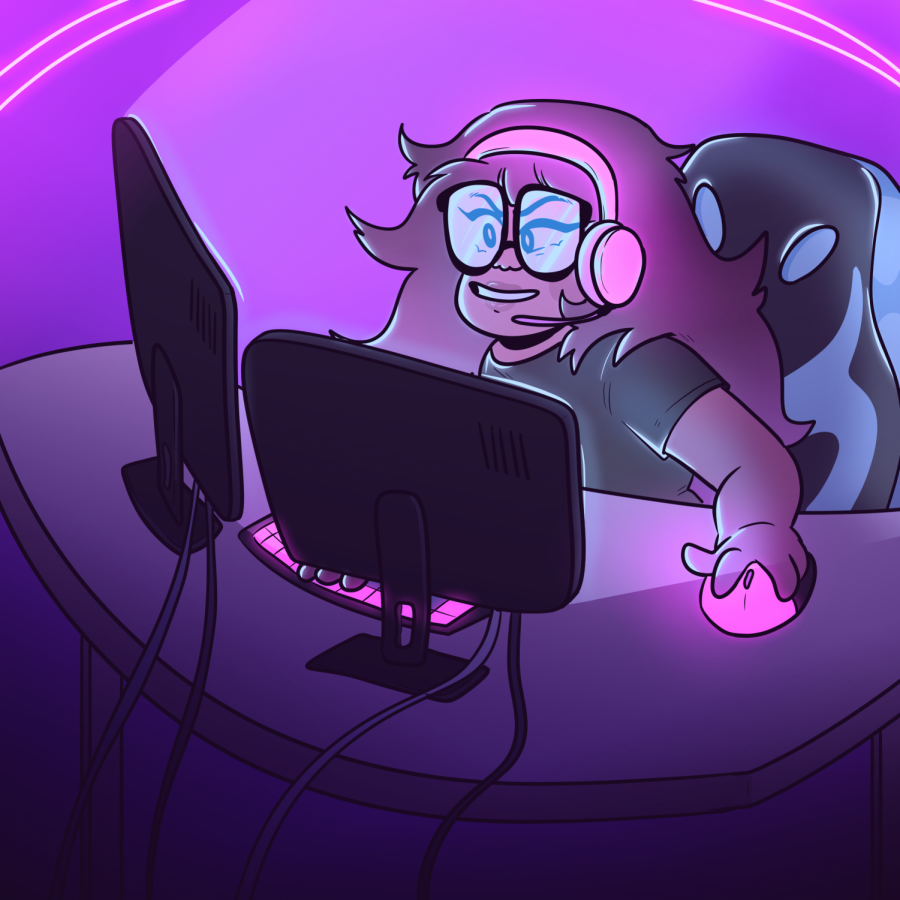UT working on plans to develop esports arena, students hope it will help promote inclusion
July 5, 2021
Content Warning: Mentions of sexual harassment.
When applying for college, Jennifer Pham looked at the gaming programs at every school she applied to. She chose UT’s gaming community for its diversity and competitive nature.
“When I first came (to UT), no one took me seriously,” computer science sophomore Pham said. “Because of my knowledge in the entire industry … they appointed me as team manager. Then I didn’t ask for respect. I had to earn their respect.”
Pham is currently the team manager for the League of Legends team at UT. She said she would go above and beyond the call of duty by attending extra scrimmages and other optional events, which caused other schools to make her offers to be their team manager. UT does not offer scholarships for esports, and Pham said the schools reaching out to her would pay her.
“I’d rather work at (UT) and put in a lot of effort here and try to get the school to become a scholarship school rather than trying to find a shortcut,” Pham said.
James Buckley, director of facilities and operations for University Unions, said other institutions have used esports facilities and scholarships as a recruiting tool.
Buckley said the University Unions is working on creating plans for an esports arena in the Union Underground that will cost between $1.1 and $1.5 million.
“In our vision, we do want this space to be welcoming for all,” Buckley said. “There is a notion or a belief that gaming is male-dominated, and there’s opportunities to be much more inclusive, and that’s what we envision.”
Mathematics senior Elena Koung is an esports intern at the University Union working on the creation of the esports arena. She said she believes the arena will allow for more diversity and inclusion in the gaming community.
“Even within gaming, if your role or your character fits a certain stereotype, you get flamed for that or called out on or delegitimized,” Koung said. “As time goes on, and people start seeing more and more diversity, it could definitely help steer the community into a better direction.”
History junior Victoria Loftin said she uses gaming as a coping mechanism for her anxiety, and it helped her connect with her friends that were far away.
“When the pandemic first started, I played a lot of Animal Crossing,” Loftin said. “It would take up a lot of my time and would calm me down if I ever had an attack of some sort.”
Loftin said she mainly plays Overwatch but mostly plays with her friends because playing with random people in the game can create a toxic environment. She said when she was playing Rec Room, an open microphone game, with her friends, she faced harassment in the game.
“That made me not want to play the game ever again because it was just a bunch of disgusting men … basically like sexually harassing me and following me around in-game, but it’s still weird,” Loftin said. “I’m trying to have fun with my friends, and it’s just creepy.”
Pham said competitive student gamers are excited to be in the same space as their teammates again to decrease miscommunication during tournaments.
“If we see each other, we’re next to each other and we’re not just a voice on the computer,” Pham said. “We see it’s another human being. We would be more kind to each other, and we really understand that we’re all the same.”












